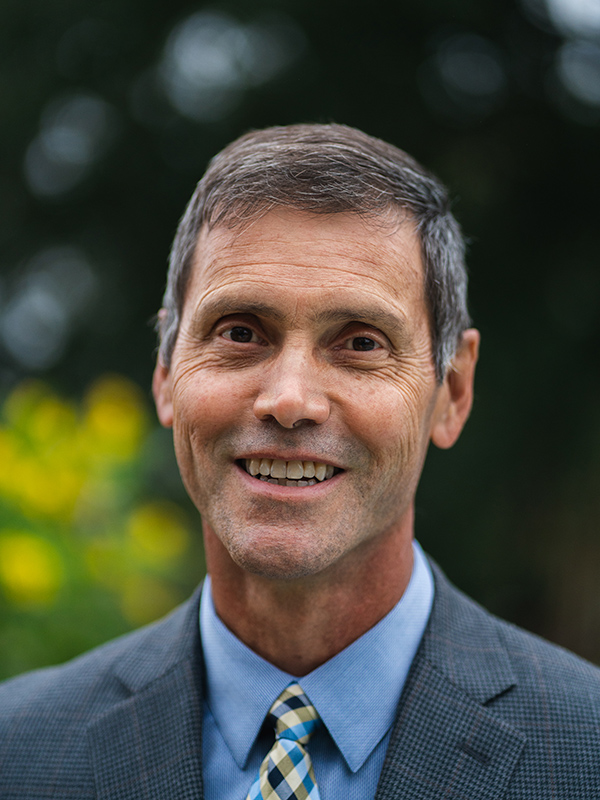Biography
Dr. Brannstrom’s research focuses on social and political aspects of renewable energy and unconventional fossil fuels in Texas. He also studies geographical dimensions of wind-power expansion in Brazil, where he has partnered with geographers at the Universidade Federal do Ceará. He regularly hosts visiting scholars interested in theoretical and empirical dimensions of environmental governance. His work has been supported by the National Science Foundation, the National Geographic Society, Texas Sea Grant, the TAMU Glasscock Center for Humanities Research, and Brazilian funding agencies.
Dr. Brannstrom’s research on geographical dimensions of energy in Texas supports his teaching of Geography 309 (Energy) through two course field trips that introduce undergraduates to several aspects of the value chain of wind power in Sweetwater, Texas, and to the post-November 2014 energy debates in Denton, Texas. His work with Brazilian geographers at the Universidade Federal do Ceará on wind power aims to foster socially and political sustainable ways to implement wind power while co-training Brazilian graduate students in new methods and new literatures.
Graduate Students
- Thomas Loder, PhD Student (Chair)
- Ryan Dicce, PhD Student (Chair)
Research Interests
- Social and Political Aspects of Renewable Energy
- Unconventional Fossil Fuels
Educational Background
- Ph.D. Geography, University of Wisconsin-Madison (1998)
Awards & Honors
- Distinguished Achievement Award (Teaching), Texas A&M University and Association of Former Students (2017)
- Outstanding Service to CLAG, Conference of Latin Americanist Geographers (2017)
- Bush Excellence Award for Faculty in International Teaching, Texas A&M University (2016)
- Distinguished Achievement Award College Level (teaching), College of Geosciences and Association of Former Students, Texas A&M University (2013)
Selected Publications
-
Huaranca, L. L., M. A. Iribarnegaray, F. Albesa, J. N. Volante, C. Brannstrom, L. Seghezzo (2019) “Social perspectives on deforestation, land use change, and economic development in an expanding agricultural frontier in northern Argentina,” Ecological Economics 165, 106424 DOI 10.1016/j.ecolecon.2019.106424
-
Gorayeb, A., C. Brannstrom, A. J. A. Meireles (eds), Impactos socioambientais da implantação dos parques de energia eólica no Brasil (Fortaleza: Coleção de Estudos Geográficos da UFC, 2019) ISBN 978-85-7282-771-3
-
Beckner, S., W. Jepson, C. Brannstrom, and J. Tracy (2019) “‘The San Antonio River doesn’t start in San Antonio, it now starts in Burleson County’: Stakeholder perspectives on a groundwater transfer project in central Texas,” Society and Natural Resources 32(11): 1222-1238 DOI: 10.1080/08941920.2019.1648709
-
Frate, C. A., C. Brannstrom, M. V. G. de Morais, A. A. Caldeira-Pires (2019) “Procedural and distributive justice inform subjectivity regarding wind power: A case from Rio Grande do Norte, Brazil,” Energy Policy 132: 185-195 DOI 10.1016/j.enpol.2019.05.027
-
Lavoie, A., and C. Brannstrom (2019) “Assembling a marine extractive reserve: The case of the Cassurubá RESEX in Brazil,” Journal of Latin American Geography 18(2): 120-151 DOI: 10.1353/lag.0.0112
-
Gorayeb, A., C. Brannstrom, A. J. A. Meireles, J. S. Mendes (2018) “Wind power gone bad: Critiquing wind power planning processes in northeastern Brazil,” Energy Research and Social Science 40: 82-88 DOI: 10.1016/j.erss.2017.11.027
-
Murphy, T., C. Brannstrom, M. Fry, M. Ewers (2018), “Economic development stakeholder perspectives on boomtown dynamics in the Eagle Ford, Texas,” Geographical Review 108(1): 24-44 DOI: 10.1111/gere.12226
-
Fry, M., C. Brannstrom, M. Sakinejad (2017) “Suburbanization and shale gas wells: Patterns, planning perspectives, and reverse setback policies,” Landscape and Urban Planning 168: 9-21 DOI: 10.1016/j.landurbplan.2017.08.005
-
Frate, C. A., C. Brannstrom (2017) “Stakeholder subjectivities regarding barriers and drivers to the introduction of utility-scale solar photovoltaic power in Brazil,” Energy Policy 111: 346-352 DOI: 10.1016/j.enpol.2017.09.048
-
Fry, M., C. Brannstrom (2017) “Emergent patterns and processes in urban hydrocarbon governance,” Energy Policy 111: 383-393 DOI:10.1016/j.enpol.2017.09.042
-
Murphy, T., C. Brannstrom, M. Fry (2017) “Ownership and spatial distribution of Eagle Ford mineral wealth in Live Oak County, Texas,” Professional Geographer 69(4): 616-628 DOI: 10.1080/00330124.2017.1298451
-
Brannstrom, C., et al. (2017) “Is Brazilian wind power development sustainable? Insights from a review of conflicts in Ceará state,” Renewable and Sustainable Energy Reviews 67: 62-71 http://dx.doi.org/10.1016/j.rser.2016.08.047
-
Broadstone, S. and C. Brannstrom (2017) “Growing food is work: The labour challenges of urban agriculture in Houston, Texas,” in Global Urban Agriculture: Convergence of Theory and Practice between North and South, ed. A. M. G. A. WinklerPrins (Boston: CABI), pp. 66-78
-
Brannstrom, C., and M. Fry (2017) “New geographies of the Texas energy revolution,” in The Routledge Research Companion to Energy Geographies, eds. Bouzarovski, S., M. Pasqualetti, V. Castán Broto (New York: Routledge), pp. 17-31
-
Brannstrom, C. (2016) “The discovery of Hispanic child labor in the Lower Rio Grande Valley: A life-geography approach,” Annals of the American Association of Geographers 106(3): 705-721 doi: 10.1080/24694452.2015.1131142
-
Brannstrom, C. and J. Vadjunec (eds.), Land Change Science, Political Ecology, and Sustainability: Synergies and Divergences (Abingdon: Earthscan from Routledge, 2013)
-

